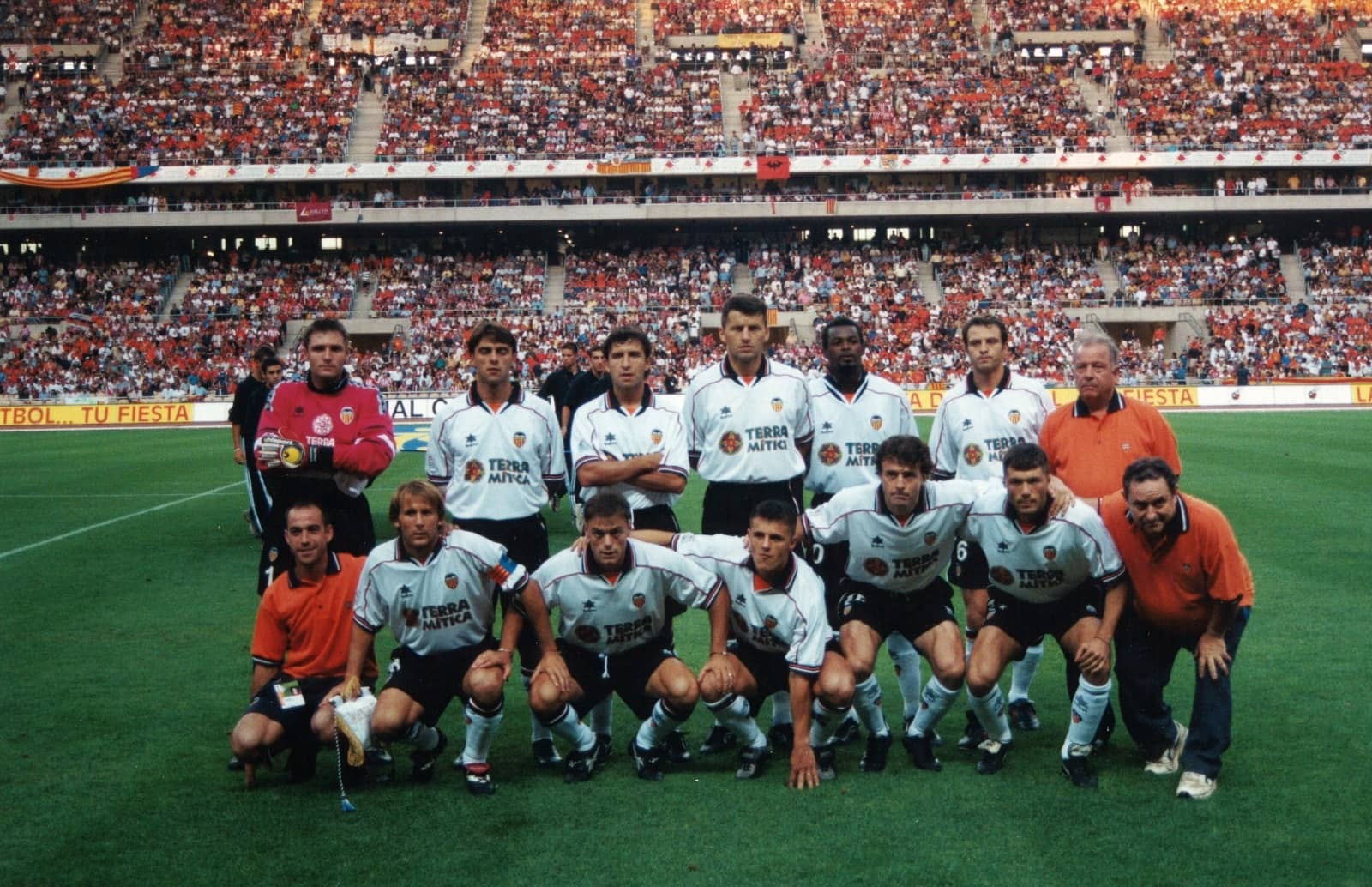Valencia Club de Fútbol

|
| Valencia CF team in 1920 — early foundations of a Mediterranean giant. |
Valencia CF — History, Identity, Triumphs & Mediterranean Pride
Origins — Birth of Valencia Football (1919)
Valencia CF was founded on 18 March 1919 at the iconic Bar Torino in the heart of the city. Football culture grew rapidly across the Mediterranean coast, and the people of Valencia embraced the sport with unmatched passion. By the 1920s, Valencia became one of Spain’s most important regional football forces.
Rise to National Recognition (1920–1940)
In its early decades, Valencia laid the foundation of a strong club structure. The team developed a competitive identity, attracting talented players and building popularity across the region. In 1923, the club inaugurated the legendary Mestalla Stadium, which would become one of Spain’s most iconic football venues.
Golden Era — League & Cup Dominance (1940s)
Immediately after the Spanish Civil War, Valencia reached
its first peak of power.
Between 1941 and 1949, the club won:
• 3 La Liga titles
• 2 Copa del Rey titles
• Multiple top-three league finishes
This era established Valencia as one of the strongest teams in Spanish football and built the foundations of its future identity.
European Breakthrough — Fairs Cup Victories (1960s)
Valencia gained international recognition in the 1960s
by winning the prestigious Inter-Cities Fairs Cup
(early version of the UEFA Cup) in:
• 1962
• 1963
These victories elevated Valencia’s status across Europe and established the club as a strong continental competitor.
The Kempes Era — Global Stardom Arrives (1970s)
The arrival of Argentine superstar Mario Kempes transformed Valencia into one of Europe’s most exciting teams. Kempes became La Liga’s top scorer twice and inspired the club to win the 1979 Copa del Rey and the historic 1980 Cup Winners’ Cup.
This period remains one of the most beloved chapters in Valencia's rich history.
Crisis, Relegation & Rebirth (1980s–1990s)
The 1980s brought instability, financial challenges, and poor performances that led to Valencia’s shocking relegation in 1986. However, the club responded with determination, returning to La Liga and rebuilding its structure through improved management and academy development.
Golden Generation — Champions of Spain & Europe (2000–2004)
The early 2000s are considered the greatest era in club history. Under managers Héctor Cúper and Rafael Benítez, Valencia played fast, intelligent, counter-attacking football and reached extraordinary levels of success.
Major achievements:
• La Liga Champions: 2001–02 & 2003–04
• UEFA Cup Champions: 2004
• UEFA Super Cup Winners: 2004
• Champions League Finalists: 2000 & 2001
This era featured legends like:
• Pablo Aimar
• David Albelda
• Rubén Baraja
• Santiago Cañizares
• David Villa
• Vicente Rodríguez
Mestalla — The Oldest Stadium in La Liga (1923–Present)
The Estadio de Mestalla is one of the most iconic stadiums in Spain. Known for its steep stands, deafening atmosphere, and emotional connection to the city, Mestalla represents the heart and soul of Valencia CF. It remains the oldest stadium currently used in La Liga.
Modern Valencia — Challenges & Hope
Despite financial instability in recent years, Valencia continues fighting with its traditional spirit. The club won the 2019 Copa del Rey in an emotional final against FC Barcelona, a moment that reconnected the fans with the team’s identity.
Young academy talents, passionate supporters, and the endless energy of Mestalla keep Valencia alive — no matter the obstacles.
The Valencia CF crest features the iconic bat (“Rat Penat”), a symbol of the city, above the club’s traditional yellow, red, and black shield representing Valencian identity and Mediterranean pride.
